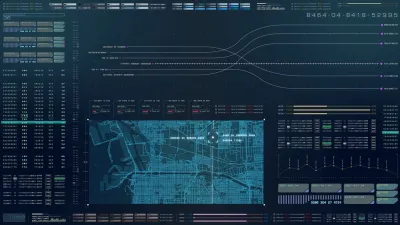Cities are becoming smarter, as buildings and infrastructures become retrofitted with sensory technology. The question this raises is how this will change our perception of the public sphere, according to Martijn de Waal.
This is an excerpt from a chapter in the book "Sentient City Ubiquitous Computing, Architecture, and the Future of Urban Space" edited by Mark Shepard.
"[T]he debate about the Sentient City can be understood as a dispute concerning the urban public sphere. On the one hand, the rise of sentient technologies is said to contribute to the (already on-going) demise of urban public spaces such as town squares, multifunctional streets and public parks. On the other hand, there is a hope that those same sentient technologies could enable new forms of publicness and exchange. These are no longer based on bringing people with different backgrounds and opinions spatially together (as in coffeehouses or town squares), but on the organization of publics around particular issues of concern."
FULL STORY: The Urban Culture of Sentient Cities: From an Internet of Things to a Public Sphere of Things

Maui's Vacation Rental Debate Turns Ugly
Verbal attacks, misinformation campaigns and fistfights plague a high-stakes debate to convert thousands of vacation rentals into long-term housing.

Planetizen Federal Action Tracker
A weekly monitor of how Trump’s orders and actions are impacting planners and planning in America.

San Francisco Suspends Traffic Calming Amidst Record Deaths
Citing “a challenging fiscal landscape,” the city will cease the program on the heels of 42 traffic deaths, including 24 pedestrians.

Defunct Pittsburgh Power Plant to Become Residential Tower
A decommissioned steam heat plant will be redeveloped into almost 100 affordable housing units.

Trump Prompts Restructuring of Transportation Research Board in “Unprecedented Overreach”
The TRB has eliminated more than half of its committees including those focused on climate, equity, and cities.

Amtrak Rolls Out New Orleans to Alabama “Mardi Gras” Train
The new service will operate morning and evening departures between Mobile and New Orleans.
Urban Design for Planners 1: Software Tools
This six-course series explores essential urban design concepts using open source software and equips planners with the tools they need to participate fully in the urban design process.
Planning for Universal Design
Learn the tools for implementing Universal Design in planning regulations.
Heyer Gruel & Associates PA
JM Goldson LLC
Custer County Colorado
City of Camden Redevelopment Agency
City of Astoria
Transportation Research & Education Center (TREC) at Portland State University
Jefferson Parish Government
Camden Redevelopment Agency
City of Claremont





























